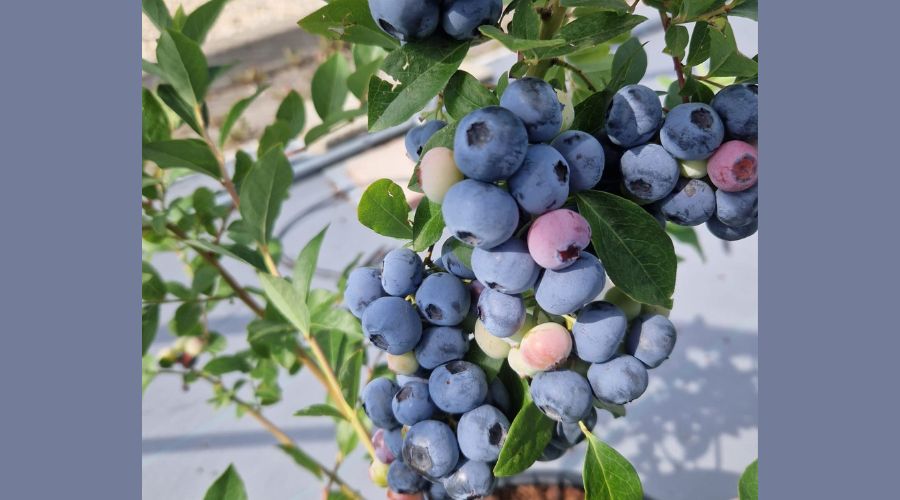James Hutton Institute introduces first Scottish-bred blueberries
28th July 2025
The James Hutton Institute has just announced the successful breeding of the Scotland’s first blueberry at its Invergowrie site.

Highland Charm is the result of 10 years’ research at the Hutton’s breeding programme, during which more than 300 unique blueberry crosses have been made and evaluated to find a selection bred from the native North American species (Vaccinium corymbosum) that can flourish in the Scottish climate.
Blueberry breeder Susan McCallum said: “This cultivar is a real standout. It combines high yields, excellent fruit size, outstanding flavour with a balanced sugar-acid profile, a satisfying bite, and an impressive shelf life.
“It is reliable and has performed well in our trials year after year, with consistent yield, size, and taste. Growers are really excited about it.”
The new berry has been successfully trialled in the UK and the EU, constantly performing well across multiple seasons and diverse conditions. Researchers are now exploring how the cultivar fares under different growing conditions and with reduced input systems, aligning with the industry’s goals for sustainability and efficiency.
‘Tremendous potential for expansion’
The breeding program at the Hutton’s research centre supports the fruit supply chain from growers to marketing organisations and retailers.
The soft fruit group works extensively with stakeholders to carry out research proposals to address specific and targeted needs of the sector, using marker-assisted breeding to reduce the time it takes to produce cultivars with the key traits of interest.
It addresses challenges facing the industry, including improved means for pest and disease control that are in line with increasing demand for reduced pesticide use in agriculture, resistance to climate change, and the rising cost of production.
Scotland’s fertile soils, abundant clean water, and milder summer temperatures create ideal conditions for producing high-quality berries, scientists explained.
Cooler summers extend the ripening period of soft fruit, allowing for greater accumulation of sugars and acids, resulting in a more intense, well-balanced flavour compared to berries that ripen rapidly in hotter climates.
UK consumers buy around 60,000 tonnes of blueberries a year, but 90% of them are imported from overseas. Researchers at the Hutton believe that blueberry has tremendous potential for expansion and that Highland Charm will meet the demands of the industry for homegrown fruit and that its climate resilience represents a significant advance for growers.
‘People will taste the difference’
Dr McCallum hopes that the new berry will encourage consumers to buy in-season, local fruit. She said: “They are fresher with higher health benefits than imported berries that take six weeks to get from the field to the shelves.
“The imported fruit is often picked slightly too early, and while its colour continues to develop, its flavour does not. I guarantee people will taste the difference with in-season, local fruit and will want to go back for more.”
Highland Charm is currently going through the licensing process that will declare it to be a novel and unique blueberry and should be on supermarket shelves in around two to three years’ time.
A sister variety that is also under development is expected to enter the licensing process next year.
Read more fruit news.
